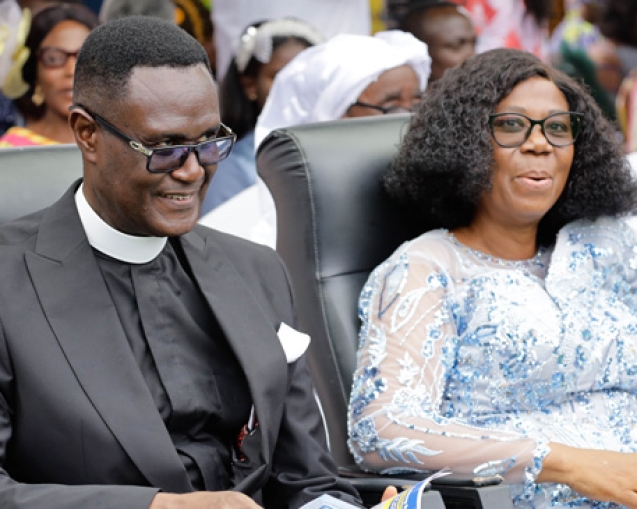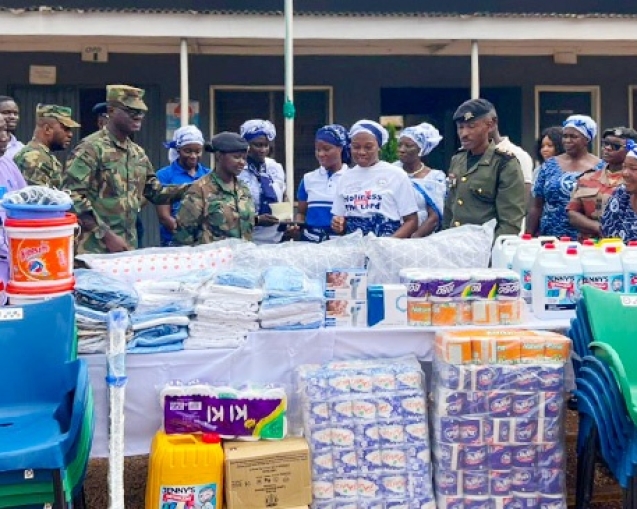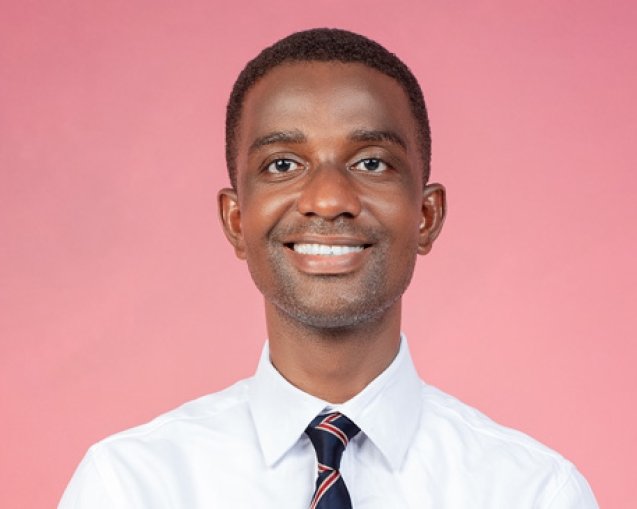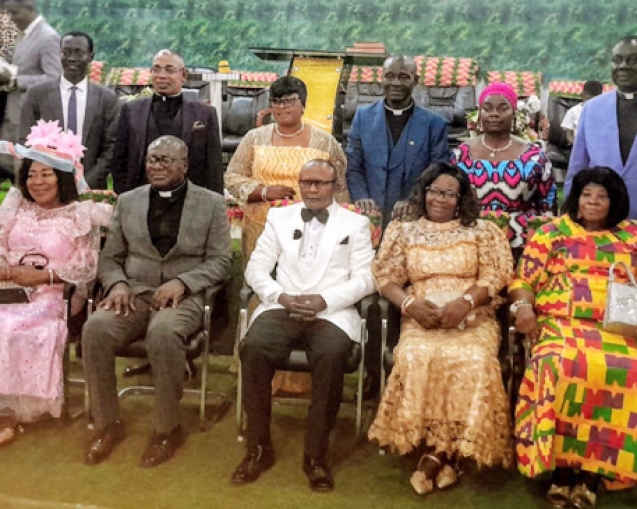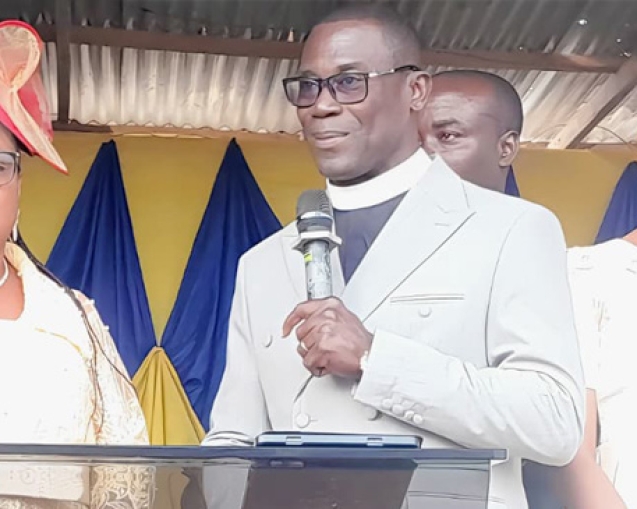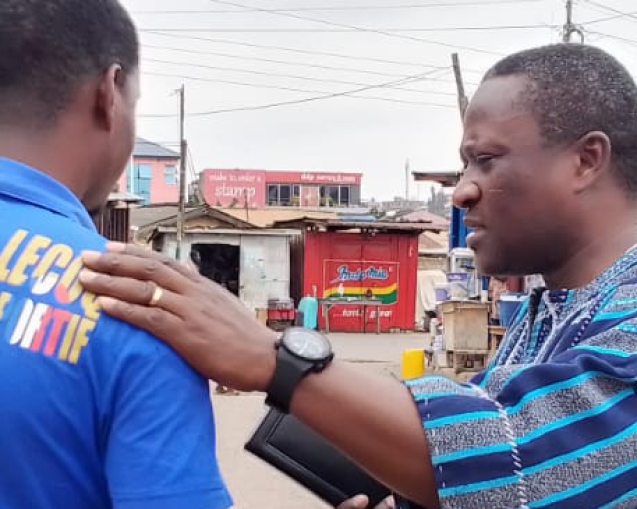The Ghana Statistical Service (GSS) Sunday started the actual enumeration of people, starting with those in transit.
Enumerators in the 2021 Population and Housing Census (PHC) visited various places to count people in homeless households in makeshift structures and open spaces, described as “outside sleepers”, people who were in transit, those at transport terminals, those who were spending short stays in institutions such as hotels and guest houses and hospitals.
The Census Night, defined as the period between 6 p.m. yesterday and 6 a.m. this morning, saw more than 60,000 enumerators across the country spending the night counting the eligible class of people.
Sunday, the counting of people in big hospitals and hotels had started across the country, the Government Statistician, Prof. Samuel Kobina Annim, told the Daily Graphic.
He said in the hotels, forms would also be left to be filled by guests who were not available to complete them.
For the outside sleepers, the target of the enumerators was to count almost all, but the officers, who wore reflective blue jackets, carried ID cards and adhered to all COVID-19 protocols, would return to the places for a mop-up.
“Enumerators will leave call-back cards at residences where no one is at home to answer questions. All are urged to use the call-back cards to schedule a convenient time that enumerators can return,” Prof. Annim stated.
He said to avoid double counting during the exercise, all persons enumerated last night would be given a ‘certificates of enumeration’.
Briefing
Earlier, at a press briefing yesterday, the Government Statistician had explained that last night’s exercise was restricted to the short stay and homeless households, with the counting and enumeration of people in households and long-stay institutions starting from today until Sunday, July 11, this year.
Prof. Annim said no one was required to travel or move to a specific place just to be enumerated, stressing that “all people should go about their normal business as usual.”
He indicated that an adult member of a household/institution could answer the questions on behalf of other members.
The Government Statistician, who was at the Kwame Nkrumah Circle himself for the enumeration exercise, thanked the public for their cooperation during the listing exercise and said the service was counting on same support for the enumeration.
Readiness
Prof. Annim said 98.3 per cent of the expected number of structures had been chalked and listed as of the end of the 11th day of the 2021 PHC.
What was left included pockets of structures at places such as Ledzokuku (Teshie), Krowor (Nungua), the Kassena Nankana Municipality, Talensi and Bolgatanga East due to refusals as a result of boundary disputes.
Prof. Annim mentioned other contributory factors such as the absence of structure residents or owners when enumerators visited, large sizes of enumeration areas and rapidly expanding localities, but gave an assurance that the chalking of all remaining structures would be completed before the start of enumeration this morning.
Monitors
Meanwhile, the United Nations Population Fund (UNFPA) has deployed 40 population experts from the international community to monitor the PHC.
The Country Representative of the UNFPA, Mr Niyi Ojuolape, who confirmed this to the Daily Graphic yesterday, said the deployment was in response to the government’s request for the UNFPA to implement the peer monitoring of the 2021 PHC.
He said the purpose of the monitoring exercise was to observe and report on the training and data collection procedures viz-a-viz international standards and best practices that could be replicated elsewhere on the African continent, with documented lessons learned.
He said the monitoring was also predicated on the need to closely monitor and provide objective assessment and feedback on the impact of the extensive use of new methodologies and technologies (innovations) on the quality of enumeration and share the experiences and best practices with other countries through South-South cooperation.
Mr Ojuolape said the independent monitoring of census exercises had gained currency, especially in the last two census rounds.
He said more developing countries and experts were requesting to be involved in the initiative, as it also facilitated knowledge gathering and experience sharing.
“The ultimate report will be used to share knowledge, experiences and best practices with other countries through UNFPA-led South-South cooperation. Population censuses have been conducted in Ghana at approximately 10-year intervals since 1891, the last being in 2010,” Mr Ojuolape said.
He said the inclusion of people from other countries would enable the process to be truly independent.
“Additionally, the independent monitoring process will benefit from skills and experiences from other parts that may be lacking within the Ghanaian context. Then, again, the inclusion of international citizens from developing countries enhances South-South exchanges,” he said.
Technology
The UNFPA Country Representative said all previous censuses, including those conducted post-independence, had been manually conducted with paper-based questionnaire.
Mr Ojuolape said for the first time ever, the PHC would be done using a fully digital modality.
“The modality utilises the Computer-Assisted Personal Interview (CAPI) method, which involves the use of tablets for data collection. While the use of technology allows for a more efficient data collection and analysing process, there are still calls to strengthen quality assurance of data collected,” he added.
Innovation
Mr Ojuolape said to facilitate the census, several innovative and unique features had been introduced in the 2021 PHC that would enable the collection of quality and policy-relevant data and ensure rapid release of user-friendly results.
He said aside from the deployment of the independent observers, the UNFPA had supported the GSS with an international consultant who had been providing technical assistance for the census process since 2019.
Enumerators can be identified by their attire – they are in reflective blue jackets and white caps emblazoned with the 2021 PHC logo.
They are required to present photo IDs when they visit.
Respondents with concerns about an enumerator should call the toll-free call centre on 0800-426-426.
Source: Graphic.com.gh








